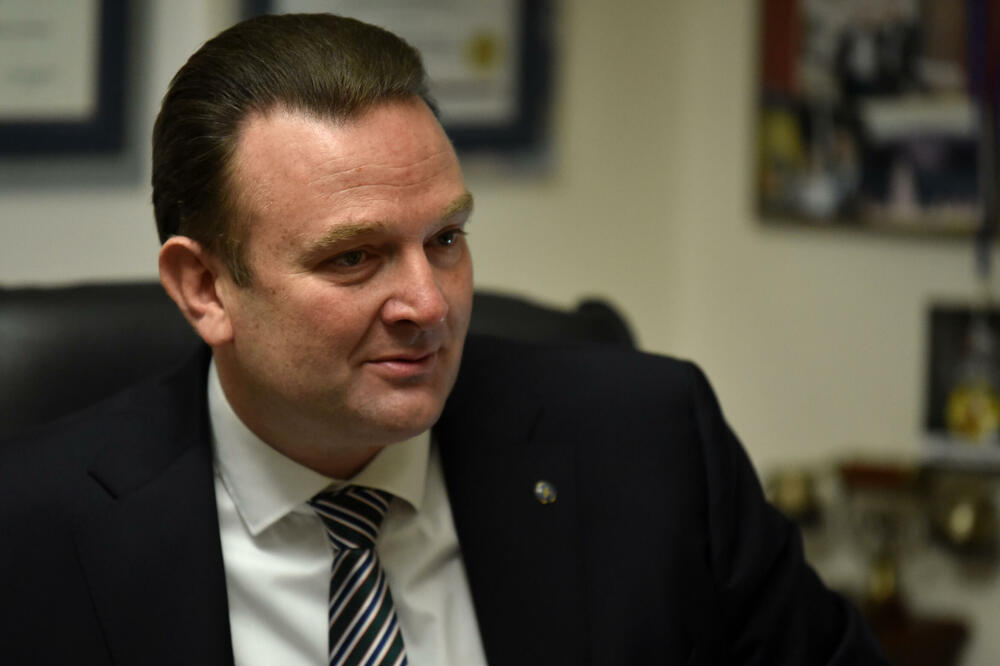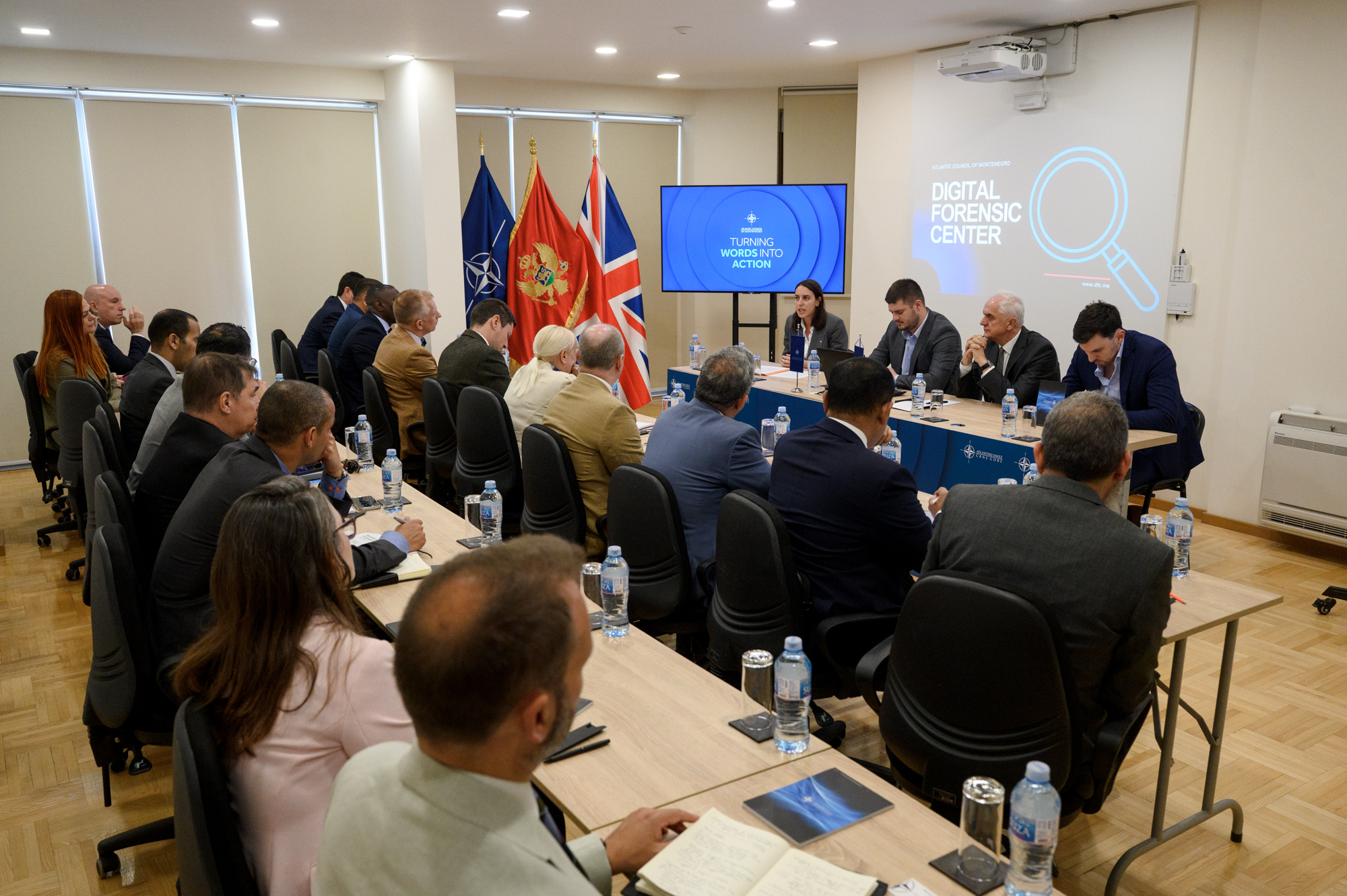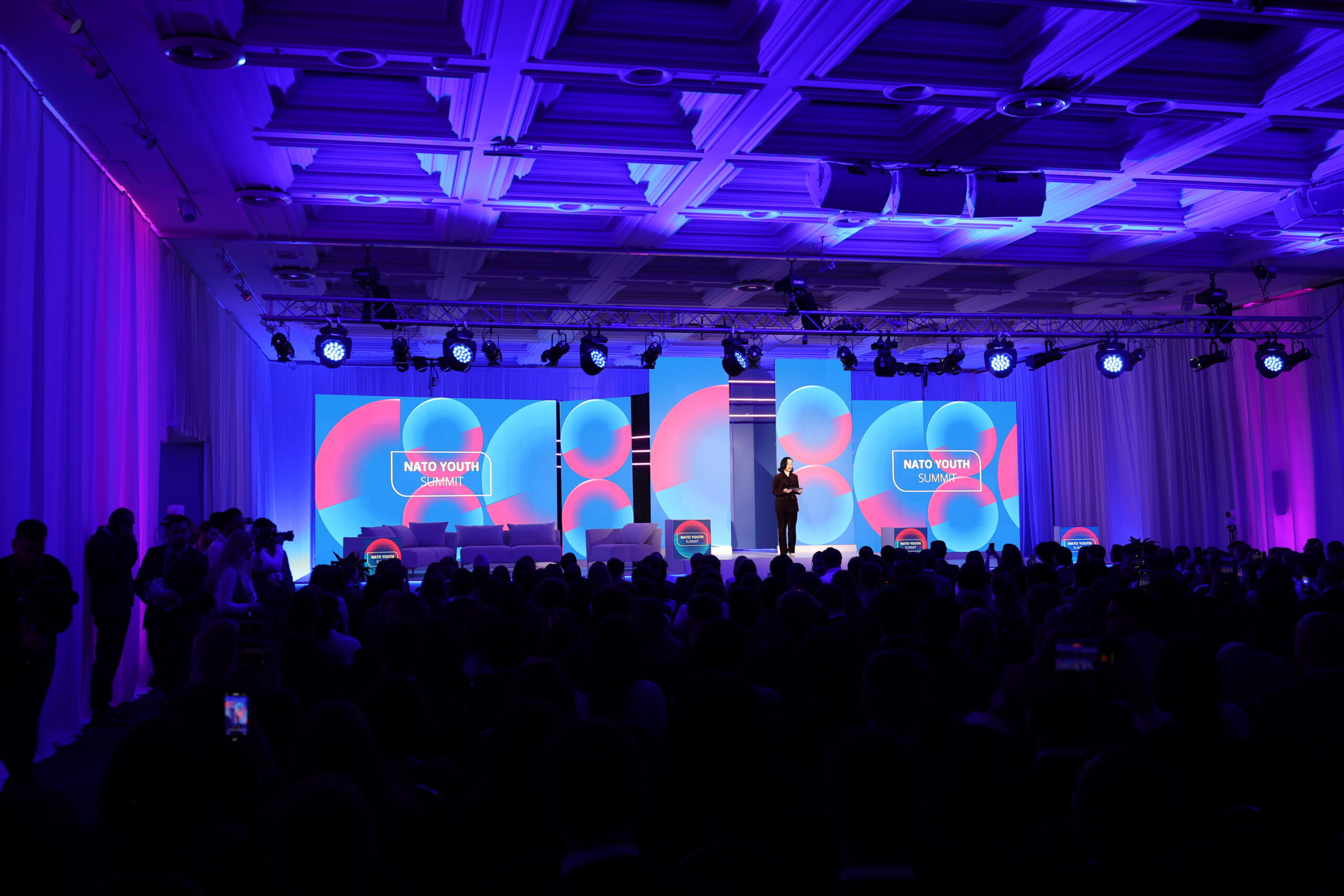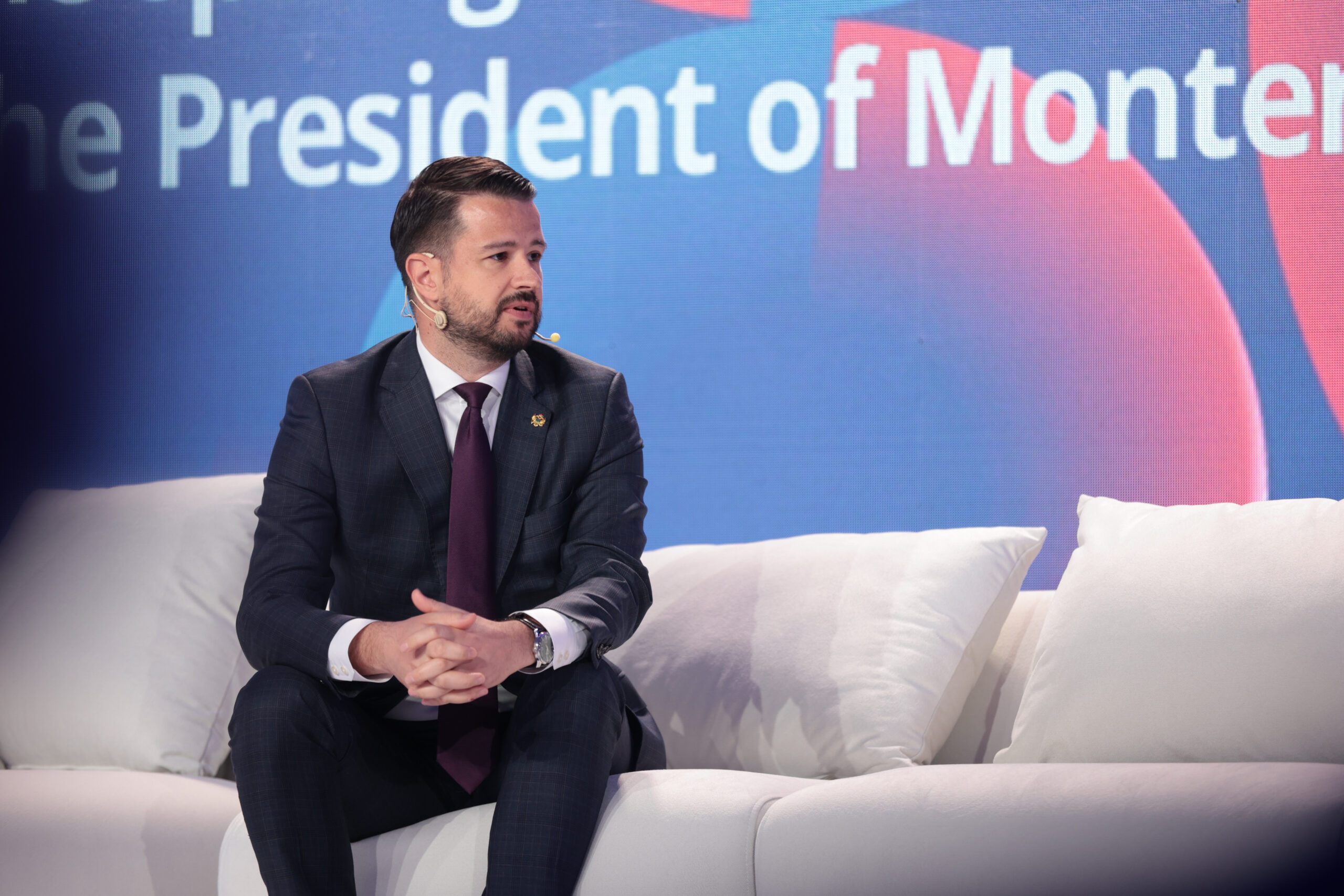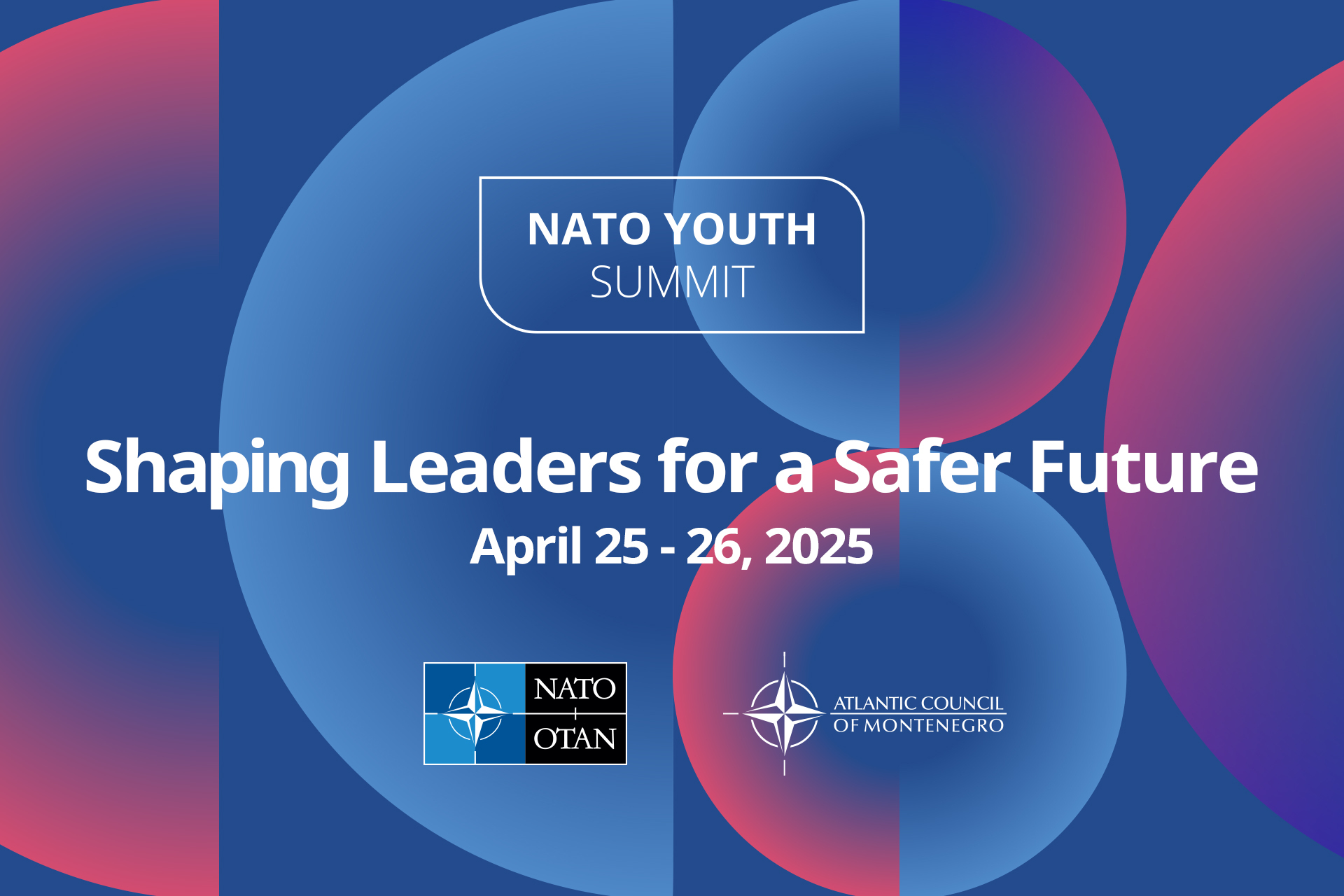Interview: Dr. Savo Kentera, President of the Atlantic Council of Montenegro (Published in the daily newspaper “Vijesti,” Wednesday, March 12, 2025; conducted by Nikola Dragaš. The full interview, including photographs, is republished with the editorial board’s permission.)
Dissolving the Agency for National Security (ANB) in its current form is the best way to bring in new personnel who will undergo a strict and rigorous vetting process, based on the principles used by intelligence services in democratic countries.
This was stated to Vijesti by the President of the Atlantic Council of Montenegro and former head of the ANB, Savo Kentera.
In an email interview, Kentera said, among other things, that Montenegro, given the current geopolitical circumstances caused by the shift in the United States’ (U.S.) approach to Europe, should focus on its own interests—namely, membership in the European Union (EU). However, at the same time, he stressed that Montenegro must not forget “who our strategic partner is and who stood by us when we needed it the most.”
“And that partner is the United States,” Kentera emphasized.
A year ago, you hinted at the possibility of political (party) engagement, saying that you had to “do something” and that you could no longer “sit on the sidelines with your arms crossed, just watching what was happening.” Why did you not get involved, but instead returned to lead the Atlantic Council?
I realized that this is an era of populism, which has completely flooded the domestic political scene and left no room for a serious vision of Montenegro as a state. To be a statesman and a leader who wants to realize their vision, one cannot expect to be popular and loved by everyone.
A statesmanlike approach also involves a series of unpopular measures that must be implemented for the prosperity of the state and society. Politics is not about selling ice cream so that everyone will like you. Populism and leadership are opposites.
At this moment, I believe that I can make the greatest contribution through the Atlantic Council of Montenegro, which reflects my decision to stick to my profession and help where I can through my expertise.
What are your views of the current political situation in Montenegro and the roles of the government and the opposition in it?
The policy of the ruling majority is focused on joining the EU, and that is the main goal. On the other hand, the motives of certain parties within that majority for joining the EU are questionable. Additionally, we do not have an opposition that thinks strategically and can adequately respond to the populist moves of the majority. Essentially, the most important thing is for us to join the EU by 2028, and I believe that both the government and the opposition, regardless of their true motives, should keep this as their priority.
Otherwise, we will miss a unique opportunity that presents itself not just because of us, but also due to geopolitical circumstances. There will be no second chance. We will end up like Georgia or Ukraine, which opens the door for other players to take over this part of the Balkans, leaving Montenegro exposed instead of being firmly rooted in the European community, where its orientation and values will not be questioned.
For that reason, we must endure everything currently happening on the political scene — which will not be easy — and support those actors who are working towards Montenegro becoming an EU member. Both the government and the opposition will always have a constructive partner in the Atlantic Council as long as they want to see Montenegro in the EU and share the values that the Atlantic Council has been advocating for the past 20 years.
You claim that the biggest mistake of DPS’s three-decade rule was that they “swept the most sensitive issues under the rug” and that the new government is doing the same. What exactly are these “most sensitive issues” you are referring to, and how do you think they should be resolved?
There are several such issues, but I primarily meant those related to national and cultural identity, economic development and strategy, healthcare, education, and infrastructure. There was no clear vision, nor were there plans and strategies for how to achieve that vision. Additionally, there was—and still is—not enough knowledge to work on developing all these areas.
The lack of knowledge and vision has been replaced by populism, which thrives not on integration but on division. As a result, we have created a society divided across many lines, with national divisions being the most prominent. Instead of debating how to achieve our goals and fulfill a vision, we are dealing with issues that Europe resolved at the end of the Middle Ages.
How do you assess the state of the security sector, and have you changed the opinion you expressed in March last year—that it has never been worse?
I have not changed that opinion. I still see enormous shortcomings in the security sector, primarily because we do not have a functional system. We have fragments that work, but the whole system does not function properly because it is not well-integrated. A fundamental reform of the entire security sector is necessary, and by that, I mean both the police and the ANB.
First and foremost, a complete depoliticization is needed. It is normal for ministers to be political figures, but it is neither normal nor beneficial for people to be appointed at lower levels solely based on political affiliation. And here, we see that nothing has fundamentally changed. However, this issue is not limited to the security sector—it exists in all other areas of society, and that is the biggest problem that must be addressed.
Although you claim that the collapse of the security sector did not begin with the fall of DPS in 2020 and the arrival of the new government, why did you not criticize the state of the sector as harshly before, when it was led by individuals who are now suspects in serious criminal cases?
Unfortunately, things are quickly forgotten here—people only remember what was said today or a few days ago. Fortunately, the Atlantic Council has institutional memory, and it is well known that our position has not changed in 20 years. We have always supported anyone working in the interest of Montenegro and its European and transatlantic path. I criticized back then, just as I do today and as I will always criticize anyone acting against the interests of Montenegro.
You were at the helm of the ANB for five months, from May to October 2022. Is the ANB a professional intelligence service, or a tool for those in power?
The task of any intelligence service, including the ANB, is to inform political decision-makers about the real state of affairs and fundamental problems in society. It must warn them of potential consequences and, if it discovers that anyone—even the decision-makers themselves—is acting against the state’s interests, it must point this out and work with the prosecution to protect national interests.
That is why I took on the job, believing that I could transform the agency into a serious, professional, and modern institution. And I was dismissed the moment I achieved concrete results based on these principles.
Are there people in the ANB whom you suspect or know to have worked, or to still be working, for other intelligence agencies or organized crime groups, considering that some former Agency officers have been suspected of belonging to criminal organizations and committing serious crimes? If such individuals exist or have existed, who do they work for or have worked for, and what actions have you taken to counter this?
If there were reasonable grounds to suspect that someone was acting in the interest of a foreign intelligence service or organized crime, those suspicions were investigated, and if confirmed, the individuals were removed from the agency. Those who succeeded me in this position were fully informed of these findings, but what they did with that information is a question for them.
In any case, during my tenure, for the first time since Montenegro declared independence, certain individuals were placed under secret surveillance due to suspicions of working for foreign intelligence services or being linked to organized crime groups.
Was anyone dismissed from the ANB on that basis?
When suspicions were indisputably confirmed, appropriate measures were taken, and such individuals were removed from the agency.
How should the ANB be reformed, and do you believe some form of vetting should be implemented in the intelligence service? Why or why not?
There are several models for intelligence service reform. Even before becoming ANB director, I advocated for dissolving the agency in its current form. I still believe this is the best way to bring in new personnel who would undergo a rigorous vetting process based on principles used by intelligence services in democratic countries. However, I did not have the necessary support for this approach, which is why such a reform was not implemented.
Additionally, a prerequisite for reform is proper legislation that positions the ANB and grants it the authority to conduct intelligence and security operations in line with international practices. The recent amendment to the ANB law has only touched upon the essence of what the agency should be doing but still does not provide the necessary legal framework for it to function effectively.
To paint you a picture: the general perception is that the ANB operates similarly to the CIA, MI6, or SVR, but only about 1% of its work aligns with those agencies. Instead, 99% of its operations resemble those of the FBI, MI5, or FSB. Consequently, expecting results from the agency without granting it adequate legal authority is unrealistic.
Finally, I believe the ANB should be led by professionals committed to defending the principles and values that Montenegro upholds as a nation. These principles come at a cost, and if we are not prepared to pay that price, we should not accept certain positions. I was willing to pay that price to defend these principles and values—and I would do it again.
Do you support the idea of some political actors to open the secret service files?
I do not support this idea. Montenegro is a small community, and there is no need to initiate something that would reopen many wounds without bringing any real benefits. It is already known who did what in Montenegro, but if this were to be made public and official—exposing who was involved, to what extent, and how deep it goes—it would be devastating for individuals, families, and society. We need to put an end to that chapter, focus on the future, and ensure that certain practices are never repeated in the same way.
On what basis do you claim that you were dismissed as ANB director “at the dictate of the Russian ambassador to Montenegro,” and why have you not publicly presented evidence of this?
It is not the agency’s role to present evidence, nor is it my responsibility to disclose them. Different institutions have different mandates—ANB collects intelligence, while the prosecution gathers evidence.
But since you ask, it was evident from all the information we had at the time. This claim is based on the fact that, just before my dismissal, we carried out an operation to counter Russian influence through Serbian proxies in Montenegro. And that was just the tip of the iceberg—the beginning of a much larger operation.
Furthermore, only Russia had an interest in my removal. The Russian ambassador was the only person who publicly stated after that action that we would “pay” for what we had done. And that is exactly what happened.
Ultimately, I was dismissed at a moment when the agency was receiving recognition from the highest international authorities—from the NATO Secretary General, the UK Foreign Secretary, and numerous officials from the EU and the U.S. The only two places from which no recognition came were Russia and the Government of Montenegro.
Do you find it problematic that the current ANB director, Mr. Ivica Janović, held Croatian citizenship, in addition to Montenegrin, just a month and a half before being appointed to the position? Do you believe that his integrity in this role is questionable due to the fact that he recently held citizenship of another country?
I see nothing problematic in the fact that he held citizenship of another country that, like Montenegro, is a NATO member and part of the EU as well. I personally know directors of intelligence services from EU countries who even held dual citizenship while serving in office. If that was not an issue for their countries, I do not see why it should be for us.
We often forget that we are part of a collective security system, and that loyalty and integrity are not demonstrated by a piece of paper but through one’s actions. I know Mr. Janović as an honest and honorable man, and I believe he should be given a chance to do his job in Montenegro’s best interest.
Do you think that he has the qualifications and experience for this role, considering that he has never worked in the security sector and that the Prime Minister claims he was recommended for the position because, as a sailor, he worked for a shipping company whose employees were involved in drug smuggling?
The nature of ANB is such that former or current directors should not publicly comment on each other’s work or qualifications. If they have something to share, it should be done in a one-on-one setting. I believe all directors have met the legal requirements for their position.
What could the change in the United States’ approach to Europe, led by Mr. Donald Trump, lead to in Europe, and what impact could it have on the Balkans and Montenegro?
Some of the issues Trump has raised—such as the role of the UN, NATO, and relations with the EU—deserve serious attention. I must point out that I share similar views on these matters. For many years, we have witnessed the inefficiency of the UN, where a single country, regardless of its name, can use its veto power to block the largest and most developed democratic nations from implementing certain decisions.
One possible solution to this problem is to increase the number of permanent members in the UN Security Council and to introduce a two-thirds majority voting system, ensuring that no single member can unilaterally block decisions of global significance.
Europe also needs to consolidate and improve its decision-making processes, perhaps using a model similar to the one I just mentioned. The key is for European leaders not to fall for provocative rhetoric. As much as the U.S. needs Europe, Europe also needs the U.S. No country, no matter how strong and powerful, can stand alone and face the challenges of the 21st century. That is why alliances are crucial.
We may very well be witnessing the creation of a new world order.
Do you think that, due to Trump’s decisions, the survival of NATO is in question? Former NATO Supreme Allied Commander for Europe, James Stavridis, claims that the Alliance may be living its final days…
I don’t believe that, and I sincerely hope it won’t happen because NATO is equally important for both Europe and the US. Multiple times since the founding of the Alliance, questions have been raised about its justification, but NATO has always emerged stronger from those situations. Too much attention is being focused on President Trump, but I would emphasize that the key lies in the American system, which I believe will, as always, act as a corrective factor. Individuals can leave their mark and define an era to a greater or lesser extent, but it is the system that makes the U.S. strong.
Ultimately, President Trump is rightly demanding that NATO member states allocate more for defense so that the U.S. does not bear the greatest burden alone. That is why I believe NATO will once again come out of this even stronger than before.
What will be the consequences of Trump’s shift in policy towards Ukraine, which Russia invaded three years ago?
Trump wants the war in Ukraine to finally end, and that is something beneficial for Ukraine, the EU, but also for the U.S. and Russia. He will do everything possible to achieve that. This goal aligns with his pragmatic approach to international relations, which emphasizes stability and the reduction of global tensions. In this way, the EU would have the opportunity to consolidate its influence in the Balkans and Eastern Europe, while the U.S. would reduce the military and economic costs of war. At the same time, it could improve relations with key European allies and Russia.
I believe it is important to have a stable and strong Russia because that means a predictable Russia, which is of great significance for all sides. Russia, as a constructive partner, can contribute to global stability, particularly through cooperation with NATO, the EU, and the U.S. Let’s not forget that Russia was once a credible member of NATO’s Partnership for Peace program and that there were significant areas of cooperation in combating organized crime, terrorism, and other global threats.
Trump has made it clear that, although he seeks to end the conflict, he will not make major concessions to Russia for the sake of peace, given the long-term geopolitical competition between the West and Russia. European allies must be cautious in this process because overly hasty compromises could jeopardize their long-term strategic goals. While stability is a shared goal for all sides, I would not speak of dramatic shifts in foreign policy.
How should Podgorica position itself considering these new geopolitical circumstances?
Montenegro must look after its own interests, and right now, that means EU membership. At the same time, we must not forget who our strategic partner is and who stood by Montenegro when we needed it most—the United States. Therefore, in this configuration of international relations, it is crucial to maintain the best possible relations with the U.S. without jeopardizing our European path. I have no doubt that the U.S. will continue to firmly support the stability of this region and strongly oppose anyone attempting to undermine the integrity of the Western Balkans.
Do you agree with the assessment of the former head of state and honorary president of the DPS, Mr. Milo Đukanović, that the policy of the U.S. State Department enabled the emergence of the so-called “Serbian World”?
It is easiest to blame others for one’s own mistakes. The “Serbian World” did not emerge in 2020; it has much deeper roots. This strategy has been implemented in the region for several decades. It was not the State Department that brought hundreds of priests from Republika Srpska and Serbia to Montenegro. Nor did it create a situation where crime is stronger than the state and where criminals, partly in the interest of the “Serbian World,” are undermining Montenegro. It was not the State Department but our own country that should have built institutions resilient to external malign influence. Had that been done, we wouldn’t be talking about the “Serbian World” in Montenegro today.
President Jakov Milatović recently announced that Montenegro will host the NATO Youth Summit this year and that the organization of this event is a result of discussions he and Prime Minister Milojko Spajić had with NATO leaders. What is the role of the Atlantic Council in organizing this event?
The Atlantic Council of Montenegro is an institutional partner of NATO in organizing the Summit, which will take place on April 25 and 26 in Budva this year. We are honored to be the hosts and organizers of this event and to welcome over a thousand participants from around the world—government officials, NATO representatives, international experts, and young leaders.
President Milatović, through his personal engagement and discussions with Secretary General Rutte, contributed to securing Montenegro as the host of this year’s Summit, and we are very grateful to him for that. I am confident that through our joint efforts, and hopefully with the support of Prime Minister Spajić, we will demonstrate that Montenegro is a justified and capable host of such a prestigious event.



